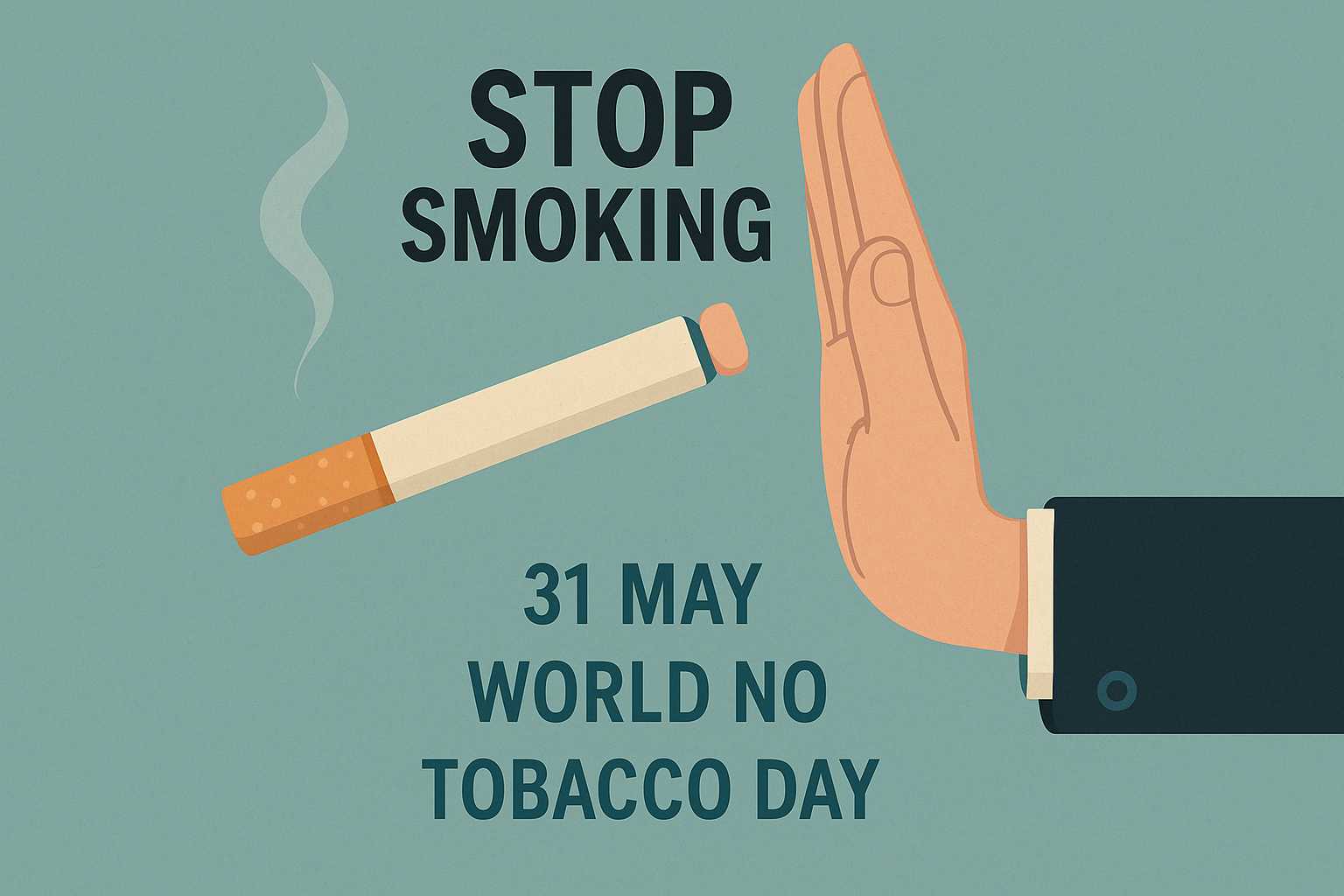Vote
-
For further training via the Zoom program or at our office? ?
Register a
Violation
We you
Contact youS.O.S.
0032 02 7322568Dr. Abdulsamad Mukhlif

The Elite and Smoking: The Paradox of Awareness and Addiction On the Occasion of World No Tobacco Day – May 31
The Elite and Smoking: The Paradox of Awareness and Addiction
On the Occasion of World No Tobacco Day – May 31
By: Dr. Abdulsamad Mukhlif
On May 31st of each year, the world reflects on its public health status in observance of World No Tobacco Day.
A day dedicated to warning humanity about this silent killer that does not discriminate between rich and poor,
illiterate or educated. The most striking paradox in this context is the widespread use of tobacco
even among members of the “elite” — those assumed to be the most aware: intellectuals, doctors, officials, and thought leaders.
Why do doctors smoke?
When you see a doctor warning about the dangers of smoking in the morning, and lighting a cigarette in the evening,
you can't help but ask: Is awareness alone enough to change behavior?
Psychology confirms that awareness of a problem does not guarantee stopping it.
Deeper factors than knowledge play a role in the smoker’s behavior, even if they are doctors or academics.
1. Psychological addiction and conditioned behavior:
Smoking often does not begin due to a biological need, but rather as a social act or a way to escape stress.
It gradually turns into a “false friend” in moments of tension, and then becomes a routine tied to certain situations:
with coffee, after work, during moments of thought. This is known in psychology as conditioning.
2. Feelings of inferiority and identity seeking:
For some, especially during adolescence, smoking begins as a way to prove "manhood" or "maturity,"
or to identify with an image they find appealing in media or among peers.
Unfortunately, some carry this perception into adulthood without realizing that smoking is not a sign of prestige
but rather a symptom of a deeper issue: lack of self-esteem.
3. The elite and the pressure of perfection:
A doctor or intellectual who feels constantly required to be a role model may find in smoking a secret outlet —
a silent rebellion against the image they are expected to maintain.
This is essentially a psychological reaction to continuous internal pressure,
not a genuine belief in smoking.
Treating Tobacco Addiction: A Psychological and Practical Approach
Quitting smoking is not just a decision, but a multi-stage journey that requires a deep understanding of psychological motivations
and a scientifically grounded practical plan. Here are the most effective methods:
1. Cognitive Behavioral Therapy (CBT):
One of the most successful psychological techniques for treating addiction.
It focuses on identifying triggers, restructuring thoughts
(e.g., changing “smoking relaxes me” to “smoking damages my health and solves nothing”),
and offering immediate alternatives (chewing gum, deep breathing, brisk walking…).
2. Group support and psychological counseling:
Participating in group support sessions, such as hospital or health organization programs,
enhances motivation, facilitates experience sharing, and provides successful role models.
3. Pharmacological treatment (nicotine replacement and medications):
Under medical supervision, the following tools may help:
- Nicotine replacement (patches, gums, sprays) to reduce withdrawal symptoms.
- Medications like Varenicline (Champix) and Bupropion (Zyban) that reduce cravings and withdrawal effects.
4. Smart apps and digital follow-up:
Mobile applications can help by:
- Tracking avoided cigarettes,
- Calculating money saved,
- Monitoring health benefits over time,
- Sending daily motivational messages.
5. Gradual versus sudden cessation:
Some people prefer a gradual reduction with healthy alternatives,
while others opt for sudden cessation (“cold turkey”) with strong psychological support.
6. Hypnotherapy:
Some use hypnosis to reprogram the subconscious to dislike smoking.
It is effective for those with strong motivation to change.
The role of family and society:
- Family support is essential to prevent relapse.
- Media and education should go beyond images of illness to offer success stories and practical strategies.
True liberation begins within:
Understanding that smoking is harmful is not enough — one must also have internal conviction,
psychological readiness, and a practical plan.
Those who truly seek life will not hold a burning cigarette.
A Message on World No Tobacco Day:
Smoking is not only a health issue; it is also a psychological, cultural, and educational one.
We will not overcome tobacco unless we first confront our inner illusions.
The elite are not exempt — on the contrary, their influence makes their liberation even more critical for society.
Listings
- 1
- 2
- 3
- 4
- 5









